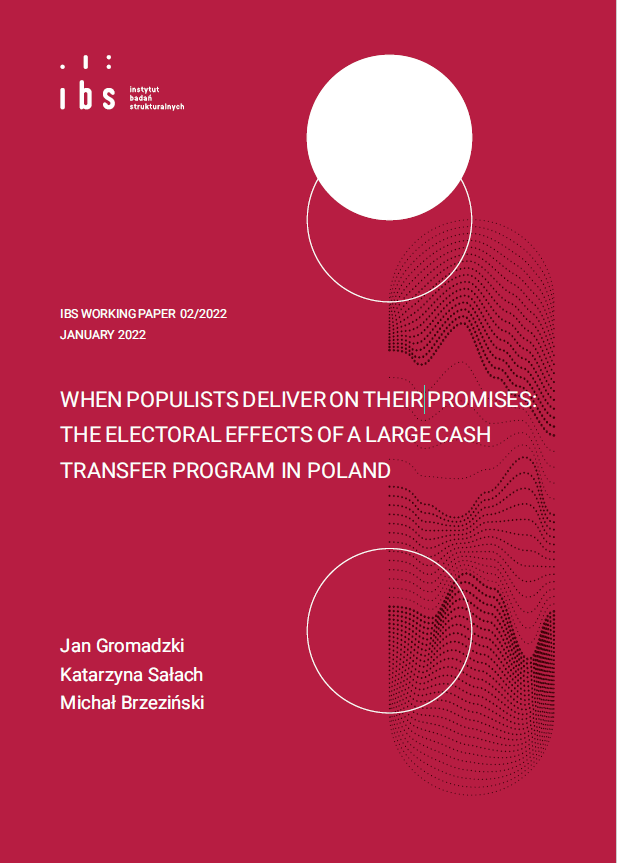We estimate the effects of the introduction of a large cash transfer program on support for the ruling populist party in Poland. We exploit the variation at the municipal level in the annual cash transfer amount received per capita, and use a difference-in-differences research design to study the electoral effects of the transfer. Our results show that a cash transfer amount of $100 per capita translated into an increase in the vote share for the ruling party of nearly two percentage points. We also find that these effects were largely due to the recruitment of previously non-voting individuals. We conclude that without the transfer program, all else being equal, the populist party would not have remained in power.

We have benefited from helpful comments and suggestions from Victor Araújo, Paweł Bukowski, Sergei Guriev, Piotr Lewandowski, Karol Madoń, Michał Myck, Arianna Ornaghi, Sarah Schneider-Strawczynski, and participants at the AEA/ASSA Annual Meeting 2022, EALE 2021, ECINEQ 2021, ESPANET 2021, HSE-EACES Workshop 2021, Max Planck Summer School on the Political Economy of Conflict and Redistribution 2021, IOS/APB/EACES Summer Academy on Central and Eastern Europe 2021, Potsdam PhD Workshop in Empirical Economics 2021. Sałach and Brzeziński acknowledge funding from the National Science Centre through grant no. 2019/35/B/HS4/01527.
Department of Economics, Vienna University of Economics and Business; Institute for Structural Research (IBS); IZA.

